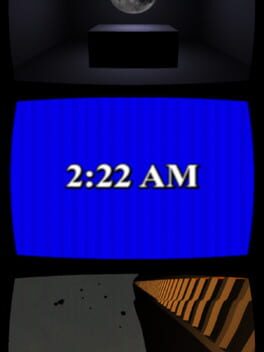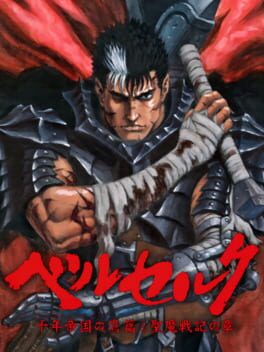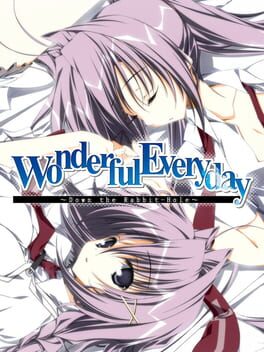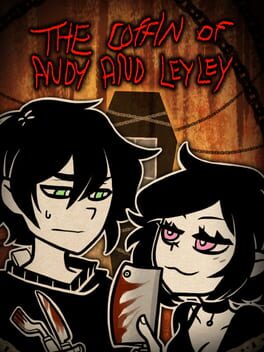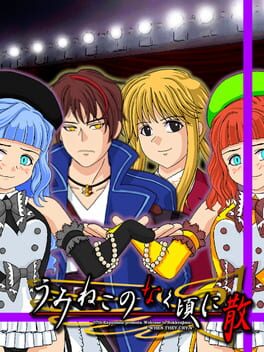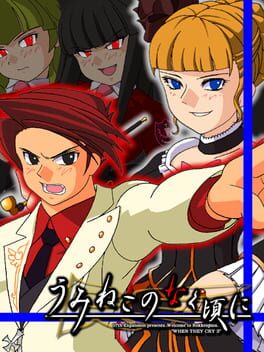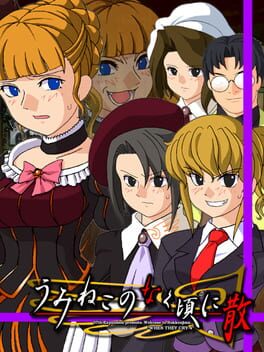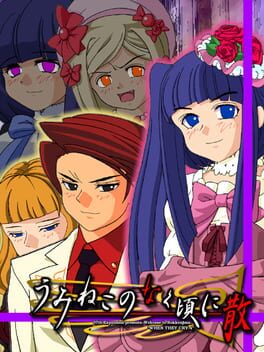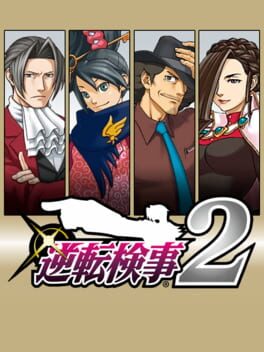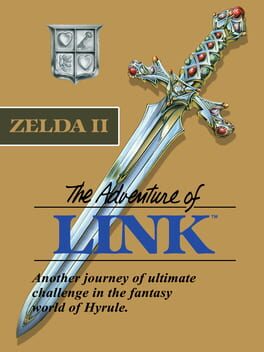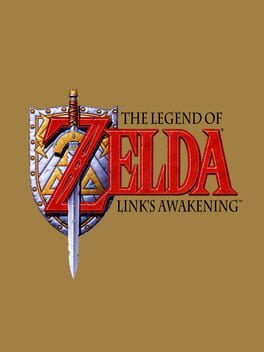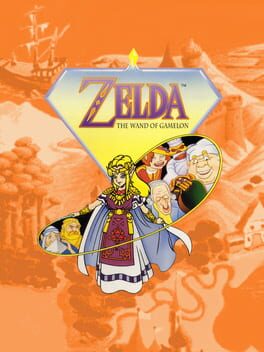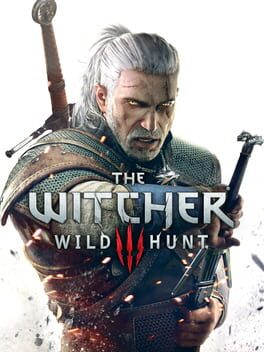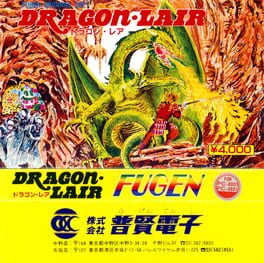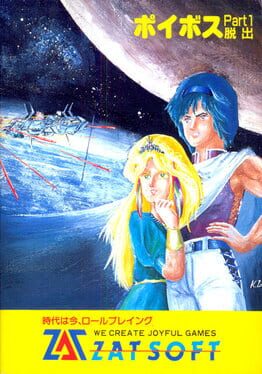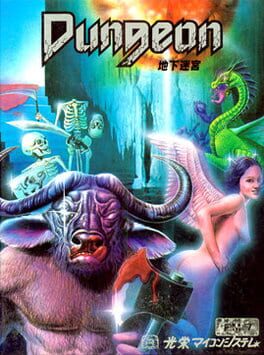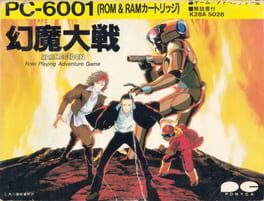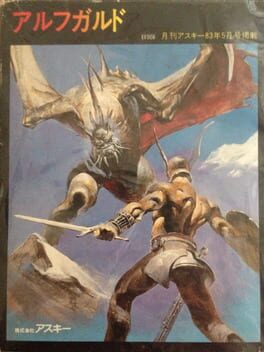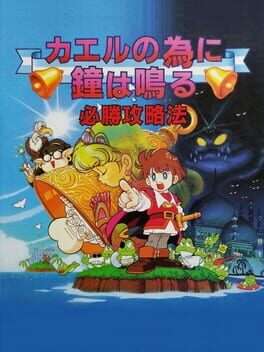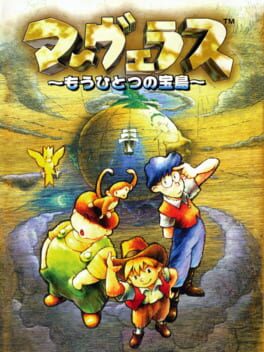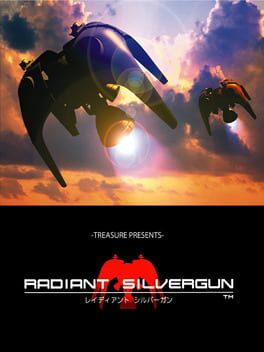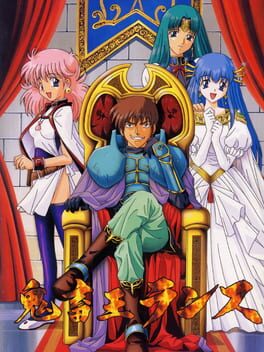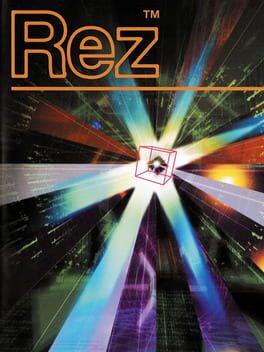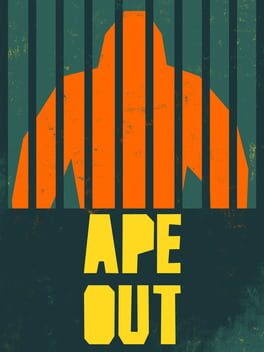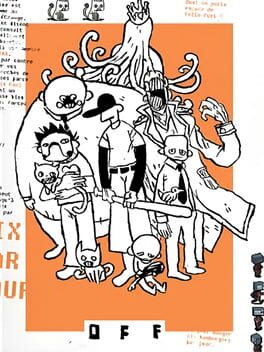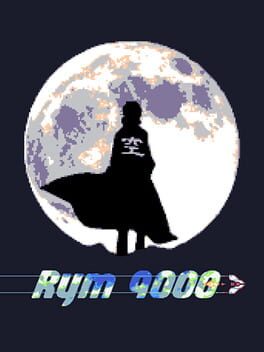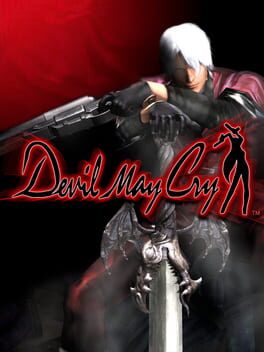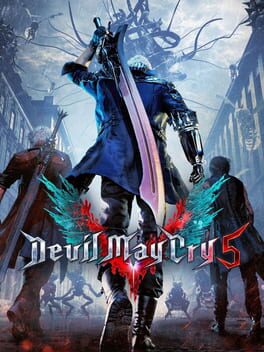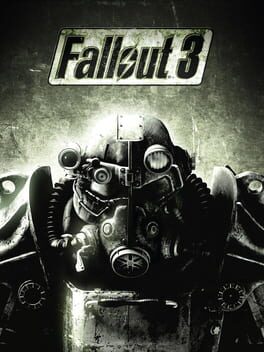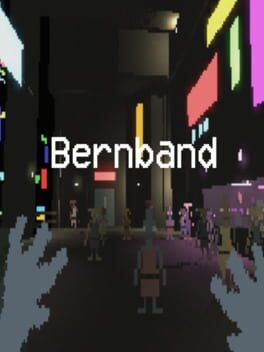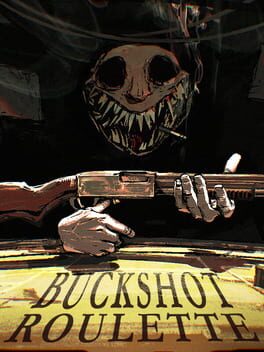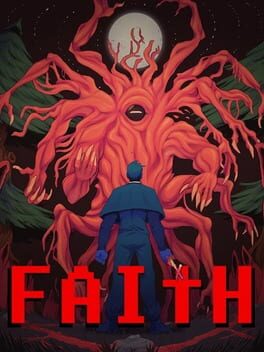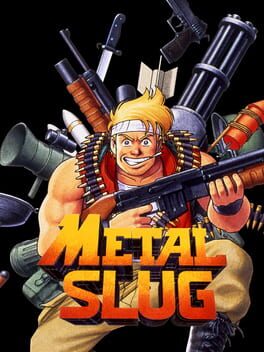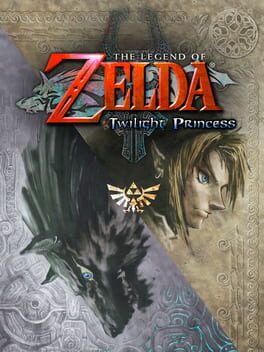brokbacktartarus
1192 reviews liked by brokbacktartarus
2:22AM
2014
When the B side of This Heat's sophomore record, "Deceit", begins, the first track starts the exact same as when the A side plays. The listener may, for a brief moment, think that they may have a faulty vinyl & are lulled into believing that the opening song may be repeating itself. That is, until, an entirely new, manic, anxiety inducing song commences to completely tear the rug out from underneath you. During some vignettes of 2:22 AM, a similar instance occurs when suddenly, a stroll around a desolate city that you thought you knew erupts into a nightmare when the buildings begin to ascend to the heavens, shattering whatever dreamy scenario you thought to be experiencing.
Played at 4 AM. I'll see you in my anxiety dreams.
Played at 4 AM. I'll see you in my anxiety dreams.
Extremely enjoyable hack and slash Berserk adaptation. This beats the Dinasty Warrior clone in every aspect despite being 12 years older than Band of the Hawk, hacking enemies to pieces feels incredible and the rpg elements feel tought for it instead of a by-the-numbers formula. You can actually feel the weight of the Dragon Slayer when Guts uses it.
I don't know how emulators handle this one, but it's worth a try
I don't know how emulators handle this one, but it's worth a try
shame we never got this in the west. Great boss battles that adapt the manga well, same with the cutscenes which do creative things to replicate miura's amazing shading. The missions between the boss fights is rather lack luster. Def emulate it with the english patch if your pc can handle it
Rest in piece to the GOAT
Rest in piece to the GOAT
I really want to rate this higher because it does some really amazing stuff for berserk fans but the levels are too fucking big in the second half of the game. If the hide and seek level and qlipoth level were a quarter of their size so they didn't feel like the game is wasting my time to extend the run time it would easily be a 4.5
What I will NOT say about this game is any form of admonishment for its portrayal of an incestuous relationship. It is simultaneously true that depiction of this type should ideally be handled with care, but in the same token it is also true that incestuousness in Andy and Leyley is one decidedly portrayed as negative and not to be endorsed or repeated. To understand this is a fundamental component of media literacy.
What I WILL admonish this game for is its writing of Ashley. It is one thing to portray a female character as a controlling freak in a heterosexual relationship (which is already its own can of worms), but when you pair this with the emotional and frequently romantically charged whining of her diatribes in chapter 1, it comes off as nothing less than a stereotype of the 'crazy bitch' that is manipulative and erratic to no end while the angelic male of the situation is forced to comb through the abuse. It is a frankly disturbing portrayal of how codepency actually works and is extremely concerning to witness. The fact that she's supposed to be annoying only works to such an extent, especially considering that Andrew had been putting up with this almost 'psychosexual' behavior at the very least when they were both school-children. It's not just unrealistic that codependency necessarily happens like this, it's probably a harmful portrayal if viewed anywhere outside the lens of intentionally exaggerated sexual fantasy- Which is, from a random outsider's perspective, not entirely apparent.
What I WILL admonish this game for is its writing of Ashley. It is one thing to portray a female character as a controlling freak in a heterosexual relationship (which is already its own can of worms), but when you pair this with the emotional and frequently romantically charged whining of her diatribes in chapter 1, it comes off as nothing less than a stereotype of the 'crazy bitch' that is manipulative and erratic to no end while the angelic male of the situation is forced to comb through the abuse. It is a frankly disturbing portrayal of how codepency actually works and is extremely concerning to witness. The fact that she's supposed to be annoying only works to such an extent, especially considering that Andrew had been putting up with this almost 'psychosexual' behavior at the very least when they were both school-children. It's not just unrealistic that codependency necessarily happens like this, it's probably a harmful portrayal if viewed anywhere outside the lens of intentionally exaggerated sexual fantasy- Which is, from a random outsider's perspective, not entirely apparent.
This review contains spoilers
For half a decade, I resisted diving into Red Dead Redemption 2, troubled by the circumstances surrounding its genesis. Learning about the reports of labor exploitation and crunch leading up to its release left me deeply disheartened by the working conditions endured by its developers.
Despite my lingering reservations, I eventually found myself pulled towards the game during a lull in recent releases. Now, having finally immersed myself in Red Dead Redemption 2, I'm grateful for the experience as it is one of the medium’s crowning achievements and a grand, maximalist work of art with one of the most fully realized worlds and some of the best character writing the medium has to offer.
While much has been said about Red Dead Redemption 2's expansive world and its protagonist, Arthur Morgan, I deliberately distanced myself from discussions about the game, allowing my experience to remain fresh.
Describing the world of Red Dead Redemption 2 as "alive" might seem cliche, but it truly embodies a sense of authenticity rarely achieved in open-world games. The world feels genuinely inhabited and organic, surpassing the typical interactive environments found in most games.
This authenticity is the result of numerous intricately woven elements. From the ambient soundtrack and immersive sound effects to the dynamic interactions between characters, coupled with captivating locations and meticulously crafted topography, every aspect harmonizes to create an unparalleled level of immersion.
Simply navigating this game’s environments was a delightful sensory experience. What's more, the world often responds to the player in subtle yet meaningful ways.
In one instance early in the game, I encountered a man in distress, crying out for help after being bitten by a snake. Offering him a health tonic saved his life and earned me his gratitude.
Hours later, while wandering through Valentine, I unexpectedly crossed paths with him again outside the gunsmith's shop. He thanked me for my earlier assistance and generously offered to cover a purchase at the shop.
This encounter was just one of numerous instances where the game acknowledged my actions and later rewarded me with interactions that reflected them, further enhancing the authenticity and believability of its world.
In that sense, it’s one of the least “videogamey” video games I have ever played. Rarely do things in the open world feel prescribed or like you’re tackling checklists, even when you are, such as when you’re hunting one of the game's dozen or so legendary animals or legendary fish.
Some may malign the microsystems in the game that lend a light simulation feel, such as the need to sleep, cook, and eat food. But they all tie back to how you engage with this world.
All of this starkly contrasts the game’s biggest flaw, its mission design. I understand that Rockstar wants to create these bombastic, cinematic, setpiece-driven missions for the player to experience. However, they are seemingly terrified of the player missing out on the carefully choreographed moments. The result is often a frustratingly restrictive mission design that penalizes even slight deviations from the intended experience.
Despite its unnecessarily rigid structure, the mission captivates players with its cinematic presentation, drawing them into the heart of the action.
One example of this is near the end of the game, where I was escorting John Marston during an ambush. Some enemies popped up atop a nearby hill, and I wanted to charge into them with my shotgun to make their little Pinkerton heads explode like overcooked pizza rolls.
Then came the frustration of encountering a fail state that seemed entirely unjustified. The game abruptly informed me that John had perished because I had strayed too far from him, even though I was just a mere 15 feet away.
Another exasperating moment occurred during a covert infiltration of an Army fort alongside Charles. The game instructed me to eliminate soldiers using a bow and arrow silently, but I opted to employ my tomahawk for stealth takedowns instead. Yet, when I approached a lone soldier facing away from me and dispatched him, the game unexpectedly triggered a fail state, citing my supposed detection.
These examples may sound trivial and arbitrary–because they are– but they highlight a significant flaw in the game's design. While many missions and setpieces are undeniably captivating, the underlying structure is marred by these inexplicable constraints, undermining the sense of freedom that the open world otherwise offers to players.
So, if half of the game is so compromised, why am I giving this five stars? Because Red Dead Redemption 2’s biggest triumph is its thought-provoking narrative and incredible character writing.
Red Dead Redemption 2 is ultimately about the death of the yeoman fantasy at the hands of Manifest Destiny and a crumbling way of life for the characters within this world. These are not “good people” in the traditional sense because they rob and kill to make ends meet. They are outlaws in the truest sense of the word, even if–most–Van Der Linde gang members have a sense of honor.
However, as the American state becomes increasingly powerful at the behest of the advancement of capitalism as the dominant economic system, the walls begin to close around them.
The Van Der Linde gang's evolution is stark; initially targeting outlaws, they shift focus to anyone capable of providing the necessary resources for survival. Dutch, the gang's leader, assumes the role of a paternal figure for many, having rescued them from dire circumstances. He wields his revered authority to shield his chosen family, yet his desperation to evade their looming fate intensifies as the game progresses.
In this changing world, there's no place left for the likes of the Van Der Linde gang. Their options narrow to either conforming to the relentless march of the progressing American state or facing annihilation by it. Consequently, Dutch repeatedly seeks one last job, a final endeavor to secure the gang's escape to distant, almost mythical lands like Tahiti.
Arthur painfully recognizes the gang's plummeting prospects and Dutch's unraveling sanity. With each passing moment, Dutch's decisions grow more reckless, leading the gang on a destructive path as they hop from one place to another, endlessly chasing the elusive promise of "one last job” and leaving chaos in their wake.
Yet Arthur and the others continue to follow Dutch, despite their better judgment, because they all love and feel indebted to him even if they know Dutch is likely and unknowingly leading them all to their demise.
The game also astutely observes that the new order replacing the era of outlaws may be even more rotten and corrupt. Under a regime fueled by unchecked capitalism and rampant labor exploitation, the scant remnants of freedom vanish, leaving individuals ensnared in a system that prioritizes profit over human dignity.
Arthur Morgan may well be one of this medium's most nuanced, endearing, and fascinating characters. I was initially drawn in by his rugged cowboy charisma, but over the course of the game, I found myself deeply attached to this mountain of a man.
The game excels in forging a deep connection with Arthur, immersing players in his internal struggles through poignant monologues and meaningful actions. Few games achieve such a profound insight into the protagonist's psyche as this one does with Arthur Morgan.
From the outset, Arthur grapples with inner turmoil, questioning the trajectory of his life, the morality of his deeds, and his purpose in the world.
It's evident that Arthur carries the burden of his past atrocities, which increasingly gnaw at him as he ages. There is a good man within Arthur, but he’s committed grim acts to persist on a path that feels more like destiny than choice. One poignant example is his relationship with Mary, his love interest, whose presence in various side quests underscores the impossibility for Arthur to break free from his tumultuous past and embrace a semblance of normalcy.
Although the game features a morality system ranging from dishonorable to honorable, portraying Arthur as dishonorable feels at odds with the narrative's portrayal of him in a chivalrous light despite his morally ambiguous actions, such as shaking down poor farmers for debt repayment.
As Arthur struggles with this internal dichotomy, he often pushes it to the back of his mind, focusing solely on the day-to-day struggle for survival. However, everything changes later in the game when he receives a devastating diagnosis: an illness that will inevitably lead to his demise: tuberculosis.
Arthur is then compelled to confront the morality of his past actions and their impact on others in the face of his own mortality. Many of the side quests from earlier chapters climax during this period, with Arthur opting to forego the harmful deeds he once would have committed to ease the burdens of those around him.
A poignant example of this transformation is his interaction with Mrs. Downes, a farmer's widow from whom Arthur extorted money earlier in the game. Mrs. Downes succumbs to the same illness that afflicts Arthur, and their encounter serves as a turning point for him. Witnessing her desperate situation, Arthur is overcome with guilt and decides to provide her and her son enough money to escape their hardships. He refrains from seeking forgiveness, feeling unworthy of it.
Although Arthur uses his diagnosis and finite time to help others, he still feels unworthy of redemption.
This marks a significant shift in Arthur's journey towards redemption. No longer able to justify his past actions, he strives to pursue a more righteous path, even if it means going against his former duties as an enforcer for the gang.
Arthur's resolve to help John, who has a family to care for, symbolizes his commitment to breaking free from the gang's destructive cycle once and for all. By this stage, Arthur's disillusionment with Dutch has peaked, and unquestioning loyalty has been replaced by a clear-eyed recognition of Dutch's reckless and senseless actions.
The tipping point comes when Dutch manipulates a group of Lakota natives into a futile diversion, sparking a needless conflict with the US Army, and publicly executes an oil baron without remorse. These actions further cement Arthur's conviction to sever ties with Dutch and his misguided leadership.
Despite being aware of his inevitable demise, Arthur sees John as a beacon of hope, someone with a future worth fighting for. His terminal diagnosis now brings him a sense of clarity and purpose. Unlike those who are uncertain about their fate, Arthur views his impending death as a gift—a catalyst for self-reflection and embarking on a new, righteous path.
Arthur's journey reaches its climax as he aids John in breaking free from the grip of Dutch's manipulative schemes.
In a climactic setpiece, the Pinkertons, relentless pursuers who have been tracking the gang throughout the game, finally close in on them. Both Arthur and John find themselves betrayed and exploited by Dutch during this chase, mere pawns in his relentless pursuit of escape. This pivotal moment marks Arthur’s final redemption, as he sacrifices the final moments of his life to give John and his family enough time to escape.
Arthur passes his hat on to John moments before his death. Knowing his time has come to an end, he finds solace in the knowledge that John and his family will persevere in the face of his imminent demise.
The game’s epilogue has the player taking control of John, grappling with his own identity crisis as he navigates life on the run with his family, unable to break free from the specter of violence looming over them—a haunting echo of Dutch's legacy.
Yet, amidst the turmoil, John finds solace in the memory of his dear friend Arthur, whose selfless sacrifice is a guiding light. Inspired by Arthur's noble example, John resolves to leave the past behind and forge a new path built on the foundation of peace and family.
Although he has long passed, Arthur's indelible presence lingers throughout the epilogue, his actions shaping the very fabric of John's newfound existence. This touching connection is captured in a scene where the player, controlling John, meticulously constructs a house, each frame infused with the symbolic presence of a Blue Jay—a subtle yet profound homage to Arthur's enduring legacy.
In certain folklore traditions, Blue Jays hold symbolic significance as protectors or guardians, believed to be spirits of those who have passed on, watching over and safeguarding their loved ones. It’s not the most subtle symbolism, but it is a deeply heartfelt one nonetheless.
The game concludes with John successfully escaping the lifelong turmoil he and his family endured, all thanks to Arthur's profound influence and the lasting impact of his actions on John's life. However, the conclusion is tinged with a bittersweet realization of the tragic events awaiting John in Red Dead Redemption.
Red Dead Redemption 2 is a monumental achievement in both vision and execution. Its immersive open world and compelling narrative transcend many of its shortcomings, such as its flawed mission design. However, it also serves as a sobering reminder of failed leadership, given the labor exploitation that marred its creation—an irony that echoes the game's portrayal of the exploitative nature of capitalism.
While I frequently criticize the current landscape of AAA gaming, which often prioritizes production values over innovation, resulting in skyrocketing budgets and an unsustainable model, I still believe there's a place for grand, maximalist experiences like Red Dead Redemption 2 in the industry–ones that use their massive budgets to expand upon the ambition of the creators. However, not every game should aim for this scale or direction, as doing so contributes to many of the issues plaguing the industry today.
Furthermore, it should prompt us to reflect on the significance of productive labor. When employees are pushed to the brink, logging upwards of 90-hour workweeks and even sleeping under their desks, one has to question the true productivity of such extreme measures. How many problems stemmed from overworked staff, necessitating additional labor to rectify issues—a cycle that likely prolonged development timelines and escalated costs?
There were assuredly ways that Red Dead Redemption 2 could have been the same as it is, with better conditions for its workers, and in fact, it could have been better for it. It’s truly a testament to the will of its creators and their collective vision that, unlike many of the games created under similar conditions, it was released as a triumph.
I think that if you’re someone like me who has put off playing Red Dead Redemption 2 because of your disdain for the circumstances surrounding its creation and the current state of AAA gaming, you should still give it a shot because you will experience something that the developers put their literal blood, sweat, and tears into and the result is a deeply moving and unforgettable experience.
After watching the credits roll, I took a few more hours simply to exist in this world. There wasn’t much left to “do,” but even days later, I found myself wanting to return to that world just to live within it. That’s about the highest praise I can give to an open-world experience. It also left me with a giant Arthur Morgan-sized hole in my heart.
Despite my lingering reservations, I eventually found myself pulled towards the game during a lull in recent releases. Now, having finally immersed myself in Red Dead Redemption 2, I'm grateful for the experience as it is one of the medium’s crowning achievements and a grand, maximalist work of art with one of the most fully realized worlds and some of the best character writing the medium has to offer.
While much has been said about Red Dead Redemption 2's expansive world and its protagonist, Arthur Morgan, I deliberately distanced myself from discussions about the game, allowing my experience to remain fresh.
Describing the world of Red Dead Redemption 2 as "alive" might seem cliche, but it truly embodies a sense of authenticity rarely achieved in open-world games. The world feels genuinely inhabited and organic, surpassing the typical interactive environments found in most games.
This authenticity is the result of numerous intricately woven elements. From the ambient soundtrack and immersive sound effects to the dynamic interactions between characters, coupled with captivating locations and meticulously crafted topography, every aspect harmonizes to create an unparalleled level of immersion.
Simply navigating this game’s environments was a delightful sensory experience. What's more, the world often responds to the player in subtle yet meaningful ways.
In one instance early in the game, I encountered a man in distress, crying out for help after being bitten by a snake. Offering him a health tonic saved his life and earned me his gratitude.
Hours later, while wandering through Valentine, I unexpectedly crossed paths with him again outside the gunsmith's shop. He thanked me for my earlier assistance and generously offered to cover a purchase at the shop.
This encounter was just one of numerous instances where the game acknowledged my actions and later rewarded me with interactions that reflected them, further enhancing the authenticity and believability of its world.
In that sense, it’s one of the least “videogamey” video games I have ever played. Rarely do things in the open world feel prescribed or like you’re tackling checklists, even when you are, such as when you’re hunting one of the game's dozen or so legendary animals or legendary fish.
Some may malign the microsystems in the game that lend a light simulation feel, such as the need to sleep, cook, and eat food. But they all tie back to how you engage with this world.
All of this starkly contrasts the game’s biggest flaw, its mission design. I understand that Rockstar wants to create these bombastic, cinematic, setpiece-driven missions for the player to experience. However, they are seemingly terrified of the player missing out on the carefully choreographed moments. The result is often a frustratingly restrictive mission design that penalizes even slight deviations from the intended experience.
Despite its unnecessarily rigid structure, the mission captivates players with its cinematic presentation, drawing them into the heart of the action.
One example of this is near the end of the game, where I was escorting John Marston during an ambush. Some enemies popped up atop a nearby hill, and I wanted to charge into them with my shotgun to make their little Pinkerton heads explode like overcooked pizza rolls.
Then came the frustration of encountering a fail state that seemed entirely unjustified. The game abruptly informed me that John had perished because I had strayed too far from him, even though I was just a mere 15 feet away.
Another exasperating moment occurred during a covert infiltration of an Army fort alongside Charles. The game instructed me to eliminate soldiers using a bow and arrow silently, but I opted to employ my tomahawk for stealth takedowns instead. Yet, when I approached a lone soldier facing away from me and dispatched him, the game unexpectedly triggered a fail state, citing my supposed detection.
These examples may sound trivial and arbitrary–because they are– but they highlight a significant flaw in the game's design. While many missions and setpieces are undeniably captivating, the underlying structure is marred by these inexplicable constraints, undermining the sense of freedom that the open world otherwise offers to players.
So, if half of the game is so compromised, why am I giving this five stars? Because Red Dead Redemption 2’s biggest triumph is its thought-provoking narrative and incredible character writing.
Red Dead Redemption 2 is ultimately about the death of the yeoman fantasy at the hands of Manifest Destiny and a crumbling way of life for the characters within this world. These are not “good people” in the traditional sense because they rob and kill to make ends meet. They are outlaws in the truest sense of the word, even if–most–Van Der Linde gang members have a sense of honor.
However, as the American state becomes increasingly powerful at the behest of the advancement of capitalism as the dominant economic system, the walls begin to close around them.
The Van Der Linde gang's evolution is stark; initially targeting outlaws, they shift focus to anyone capable of providing the necessary resources for survival. Dutch, the gang's leader, assumes the role of a paternal figure for many, having rescued them from dire circumstances. He wields his revered authority to shield his chosen family, yet his desperation to evade their looming fate intensifies as the game progresses.
In this changing world, there's no place left for the likes of the Van Der Linde gang. Their options narrow to either conforming to the relentless march of the progressing American state or facing annihilation by it. Consequently, Dutch repeatedly seeks one last job, a final endeavor to secure the gang's escape to distant, almost mythical lands like Tahiti.
Arthur painfully recognizes the gang's plummeting prospects and Dutch's unraveling sanity. With each passing moment, Dutch's decisions grow more reckless, leading the gang on a destructive path as they hop from one place to another, endlessly chasing the elusive promise of "one last job” and leaving chaos in their wake.
Yet Arthur and the others continue to follow Dutch, despite their better judgment, because they all love and feel indebted to him even if they know Dutch is likely and unknowingly leading them all to their demise.
The game also astutely observes that the new order replacing the era of outlaws may be even more rotten and corrupt. Under a regime fueled by unchecked capitalism and rampant labor exploitation, the scant remnants of freedom vanish, leaving individuals ensnared in a system that prioritizes profit over human dignity.
Arthur Morgan may well be one of this medium's most nuanced, endearing, and fascinating characters. I was initially drawn in by his rugged cowboy charisma, but over the course of the game, I found myself deeply attached to this mountain of a man.
The game excels in forging a deep connection with Arthur, immersing players in his internal struggles through poignant monologues and meaningful actions. Few games achieve such a profound insight into the protagonist's psyche as this one does with Arthur Morgan.
From the outset, Arthur grapples with inner turmoil, questioning the trajectory of his life, the morality of his deeds, and his purpose in the world.
It's evident that Arthur carries the burden of his past atrocities, which increasingly gnaw at him as he ages. There is a good man within Arthur, but he’s committed grim acts to persist on a path that feels more like destiny than choice. One poignant example is his relationship with Mary, his love interest, whose presence in various side quests underscores the impossibility for Arthur to break free from his tumultuous past and embrace a semblance of normalcy.
Although the game features a morality system ranging from dishonorable to honorable, portraying Arthur as dishonorable feels at odds with the narrative's portrayal of him in a chivalrous light despite his morally ambiguous actions, such as shaking down poor farmers for debt repayment.
As Arthur struggles with this internal dichotomy, he often pushes it to the back of his mind, focusing solely on the day-to-day struggle for survival. However, everything changes later in the game when he receives a devastating diagnosis: an illness that will inevitably lead to his demise: tuberculosis.
Arthur is then compelled to confront the morality of his past actions and their impact on others in the face of his own mortality. Many of the side quests from earlier chapters climax during this period, with Arthur opting to forego the harmful deeds he once would have committed to ease the burdens of those around him.
A poignant example of this transformation is his interaction with Mrs. Downes, a farmer's widow from whom Arthur extorted money earlier in the game. Mrs. Downes succumbs to the same illness that afflicts Arthur, and their encounter serves as a turning point for him. Witnessing her desperate situation, Arthur is overcome with guilt and decides to provide her and her son enough money to escape their hardships. He refrains from seeking forgiveness, feeling unworthy of it.
Although Arthur uses his diagnosis and finite time to help others, he still feels unworthy of redemption.
This marks a significant shift in Arthur's journey towards redemption. No longer able to justify his past actions, he strives to pursue a more righteous path, even if it means going against his former duties as an enforcer for the gang.
Arthur's resolve to help John, who has a family to care for, symbolizes his commitment to breaking free from the gang's destructive cycle once and for all. By this stage, Arthur's disillusionment with Dutch has peaked, and unquestioning loyalty has been replaced by a clear-eyed recognition of Dutch's reckless and senseless actions.
The tipping point comes when Dutch manipulates a group of Lakota natives into a futile diversion, sparking a needless conflict with the US Army, and publicly executes an oil baron without remorse. These actions further cement Arthur's conviction to sever ties with Dutch and his misguided leadership.
Despite being aware of his inevitable demise, Arthur sees John as a beacon of hope, someone with a future worth fighting for. His terminal diagnosis now brings him a sense of clarity and purpose. Unlike those who are uncertain about their fate, Arthur views his impending death as a gift—a catalyst for self-reflection and embarking on a new, righteous path.
Arthur's journey reaches its climax as he aids John in breaking free from the grip of Dutch's manipulative schemes.
In a climactic setpiece, the Pinkertons, relentless pursuers who have been tracking the gang throughout the game, finally close in on them. Both Arthur and John find themselves betrayed and exploited by Dutch during this chase, mere pawns in his relentless pursuit of escape. This pivotal moment marks Arthur’s final redemption, as he sacrifices the final moments of his life to give John and his family enough time to escape.
Arthur passes his hat on to John moments before his death. Knowing his time has come to an end, he finds solace in the knowledge that John and his family will persevere in the face of his imminent demise.
The game’s epilogue has the player taking control of John, grappling with his own identity crisis as he navigates life on the run with his family, unable to break free from the specter of violence looming over them—a haunting echo of Dutch's legacy.
Yet, amidst the turmoil, John finds solace in the memory of his dear friend Arthur, whose selfless sacrifice is a guiding light. Inspired by Arthur's noble example, John resolves to leave the past behind and forge a new path built on the foundation of peace and family.
Although he has long passed, Arthur's indelible presence lingers throughout the epilogue, his actions shaping the very fabric of John's newfound existence. This touching connection is captured in a scene where the player, controlling John, meticulously constructs a house, each frame infused with the symbolic presence of a Blue Jay—a subtle yet profound homage to Arthur's enduring legacy.
In certain folklore traditions, Blue Jays hold symbolic significance as protectors or guardians, believed to be spirits of those who have passed on, watching over and safeguarding their loved ones. It’s not the most subtle symbolism, but it is a deeply heartfelt one nonetheless.
The game concludes with John successfully escaping the lifelong turmoil he and his family endured, all thanks to Arthur's profound influence and the lasting impact of his actions on John's life. However, the conclusion is tinged with a bittersweet realization of the tragic events awaiting John in Red Dead Redemption.
Red Dead Redemption 2 is a monumental achievement in both vision and execution. Its immersive open world and compelling narrative transcend many of its shortcomings, such as its flawed mission design. However, it also serves as a sobering reminder of failed leadership, given the labor exploitation that marred its creation—an irony that echoes the game's portrayal of the exploitative nature of capitalism.
While I frequently criticize the current landscape of AAA gaming, which often prioritizes production values over innovation, resulting in skyrocketing budgets and an unsustainable model, I still believe there's a place for grand, maximalist experiences like Red Dead Redemption 2 in the industry–ones that use their massive budgets to expand upon the ambition of the creators. However, not every game should aim for this scale or direction, as doing so contributes to many of the issues plaguing the industry today.
Furthermore, it should prompt us to reflect on the significance of productive labor. When employees are pushed to the brink, logging upwards of 90-hour workweeks and even sleeping under their desks, one has to question the true productivity of such extreme measures. How many problems stemmed from overworked staff, necessitating additional labor to rectify issues—a cycle that likely prolonged development timelines and escalated costs?
There were assuredly ways that Red Dead Redemption 2 could have been the same as it is, with better conditions for its workers, and in fact, it could have been better for it. It’s truly a testament to the will of its creators and their collective vision that, unlike many of the games created under similar conditions, it was released as a triumph.
I think that if you’re someone like me who has put off playing Red Dead Redemption 2 because of your disdain for the circumstances surrounding its creation and the current state of AAA gaming, you should still give it a shot because you will experience something that the developers put their literal blood, sweat, and tears into and the result is a deeply moving and unforgettable experience.
After watching the credits roll, I took a few more hours simply to exist in this world. There wasn’t much left to “do,” but even days later, I found myself wanting to return to that world just to live within it. That’s about the highest praise I can give to an open-world experience. It also left me with a giant Arthur Morgan-sized hole in my heart.
"Even if all the trees return, it won't be his forest anymore. The Great Forest Spirit is dead now"
"Never. He's life itself. He's not dead, San. He's here right now, trying to tell us something, that it's time for us both to live."
- Zelda, apparently.
If I were to describe Tears of the Kingdom with one word, it would probably be... incongruent. Multitudes of new concepts that are more or less at odds with one another, a new experience in some ways and a modded version of botw in others. Borrowing the same story and gameplay structure from its predecessor, I intially assumed they would have the space to create something that functioned very differently from botw, such as how Majora's Mask was not only a wholly unique experience to the series but also had a very strange philosophical edge to it. Tears of the Kingdom does not achieve this...while being fun, it almost shirks off its own originality in favor of adding more unnecessary content. I am someone who appreciates Zelda mostly for its overworld and world building, and throughout my playthrough I would always get the impression that this did not feel like a Zelda game at all. The core presentation wasnt there, even if they slapped some dungeons and sages on top of it. The feeling is off, because the feeling is not organic.
(Spoilers in the image links below)
My biggest issue with totk is just how much it takes from other creations. Nintendo has intelligent people working for them, and all the money in the world. There really is not a reason for such blatant copying of other... certain... franchises. I knew going in that they were absolutely going all in on the Mononoke plagiarism, I mean, one glance at Link's fucked up arm should relay that message to you. But even the gloom itself looks a little familar. Even the music hit certain stings that I could have sworn were one for one with tracks from Mononoke. But then other things started to just look a little bit too familiar to me. And if they can do that whats stopping them from just doing whatever they want? Even the cutscenes feel like theyre trying to act upon that Miyazaki style of directing, but while Ghibli's favorite director actually has meaning behind his words, totk feels like it merely wants to look like its saying something important without saying anything at all. The emotional moments in this game feel plastic. And just when i thought it could not get any worse, they hit me with the double whammy of these scenes. Two setpieces heavily resembling some of the most memorable moments from Spirited Away and Laputa... I really do not see it as a coincidence. And it makes the game feel lesser, because it is not itself. It is not organically creating something through the usual means, it is ripping a thing from its contexts and presenting the empty shell. Its strange, because Zelda doesnt need that. Zelda is a very lush world with a lot to work with... and they already had good original ideas, which they didnt feel like using to its full potential at all.
The Zonai people were something i was every excited about when I first started the game. I absolutely love ancient things and anthropology, their intricate style was very appealing. After beating the game I still believe they are the most interesting aspects added to the botw world, but the sky and the Zonai are not used at all whatsoever. This new, creative race, and there are only 2 of them in the game. Not to mention that the sky is woefully underused, almost exempt from the game excluding the wonderful opening island. They are functioned to be miniature puzzle islands, there is nothing to do with the Zonai besides the devices you can find there and dear god let me complain about the devices.
If it was not bad enough that the thing they advertised the game with was not the focus of the experience, but Zonai materials you all were so excited to build with were actually just one use puzzle-solving contraptions with a fun exterior. Sure, you can spend 3 or 6 or 10 mintes desperately trying to attach a fan to a birdplane and get it to fly, but the game will only let you use things for a certain amount of time. It breaks apart after 30 seconds or so, sometimes shorter. So long to your dreams of flying around Hyrule, have fun trying to get to those niche sky islands when Nintendo decides you have had enough of a good time and breaks it apart 30,000 feet in the air. I have heard complaints about the horses in this game not being useful because of the superiority of the machines, but at least my horse wont explode after an arbitrary amount of time.
I believe they did a fine job of making the game feel different. I did not recognize most of Hyrule, mind for a few specific landmarks. I had a fun time hunting for treasure and scenic spots. The combat was still the best it has been in the series, and unlike others i appreciate the durability on the weapons for allowing me to experience types of gameplay i normally wouldnt gravitate to. The fuse mechanic is very useful and very silly; a fantastic motivator to continually engage in combat to make your armory stronger. The loop in this game of being rewarded for exploring in the form of monster parts and food, then using that to take on a dungeon is generally well thought out but definitely became unbalanced at times as i was stuck consistently without food just trying to get through the story.
I do believe i prefer this game over botw though, contrary to my complaints. Its still a good game for someone who despises Zelda puzzles (though the Mineru dungeon pushed that a lot). The Zonai style is much more preferred to me compared to the Shekiah devices. I love the way the game looks; the world is breathtaking for the switch. The view of the sky is glorious, the world feels open and new. I did have fun exploring what i explored, Link's new outfits were a particularly good motivator for poking around. I generally hate botw's character design and i feel like it alienates itself from the strong art style of the previous games, especially when it comes to its female characters.The new bunch introduced in this game were the best of the best in terms of design for botw, though they are all woefully underused like much of the good things in this game.
But despite how fun the actual game was, this still feels safe. It feels plastic, and afraid to be ugly or weird. It is not Zelda and it isnt whatever its trying to emulate. There is no jumps to administer a completely different experience and it comes off as dissonant. Like im playing an elaborate mod. The bloated content in places it shouldnt have it definitely weighs it down, especially when there was a great potential for a niche of its own that the game goes out of its way to ignore. It was a fun experience as a game but everything outside of my horse and Link in his gay dragon outfit forces itself to be something that isnt wholly theirs and doesnt fit. A fun game, but not a smart one.
"Never. He's life itself. He's not dead, San. He's here right now, trying to tell us something, that it's time for us both to live."
- Zelda, apparently.
If I were to describe Tears of the Kingdom with one word, it would probably be... incongruent. Multitudes of new concepts that are more or less at odds with one another, a new experience in some ways and a modded version of botw in others. Borrowing the same story and gameplay structure from its predecessor, I intially assumed they would have the space to create something that functioned very differently from botw, such as how Majora's Mask was not only a wholly unique experience to the series but also had a very strange philosophical edge to it. Tears of the Kingdom does not achieve this...while being fun, it almost shirks off its own originality in favor of adding more unnecessary content. I am someone who appreciates Zelda mostly for its overworld and world building, and throughout my playthrough I would always get the impression that this did not feel like a Zelda game at all. The core presentation wasnt there, even if they slapped some dungeons and sages on top of it. The feeling is off, because the feeling is not organic.
(Spoilers in the image links below)
My biggest issue with totk is just how much it takes from other creations. Nintendo has intelligent people working for them, and all the money in the world. There really is not a reason for such blatant copying of other... certain... franchises. I knew going in that they were absolutely going all in on the Mononoke plagiarism, I mean, one glance at Link's fucked up arm should relay that message to you. But even the gloom itself looks a little familar. Even the music hit certain stings that I could have sworn were one for one with tracks from Mononoke. But then other things started to just look a little bit too familiar to me. And if they can do that whats stopping them from just doing whatever they want? Even the cutscenes feel like theyre trying to act upon that Miyazaki style of directing, but while Ghibli's favorite director actually has meaning behind his words, totk feels like it merely wants to look like its saying something important without saying anything at all. The emotional moments in this game feel plastic. And just when i thought it could not get any worse, they hit me with the double whammy of these scenes. Two setpieces heavily resembling some of the most memorable moments from Spirited Away and Laputa... I really do not see it as a coincidence. And it makes the game feel lesser, because it is not itself. It is not organically creating something through the usual means, it is ripping a thing from its contexts and presenting the empty shell. Its strange, because Zelda doesnt need that. Zelda is a very lush world with a lot to work with... and they already had good original ideas, which they didnt feel like using to its full potential at all.
The Zonai people were something i was every excited about when I first started the game. I absolutely love ancient things and anthropology, their intricate style was very appealing. After beating the game I still believe they are the most interesting aspects added to the botw world, but the sky and the Zonai are not used at all whatsoever. This new, creative race, and there are only 2 of them in the game. Not to mention that the sky is woefully underused, almost exempt from the game excluding the wonderful opening island. They are functioned to be miniature puzzle islands, there is nothing to do with the Zonai besides the devices you can find there and dear god let me complain about the devices.
If it was not bad enough that the thing they advertised the game with was not the focus of the experience, but Zonai materials you all were so excited to build with were actually just one use puzzle-solving contraptions with a fun exterior. Sure, you can spend 3 or 6 or 10 mintes desperately trying to attach a fan to a birdplane and get it to fly, but the game will only let you use things for a certain amount of time. It breaks apart after 30 seconds or so, sometimes shorter. So long to your dreams of flying around Hyrule, have fun trying to get to those niche sky islands when Nintendo decides you have had enough of a good time and breaks it apart 30,000 feet in the air. I have heard complaints about the horses in this game not being useful because of the superiority of the machines, but at least my horse wont explode after an arbitrary amount of time.
I believe they did a fine job of making the game feel different. I did not recognize most of Hyrule, mind for a few specific landmarks. I had a fun time hunting for treasure and scenic spots. The combat was still the best it has been in the series, and unlike others i appreciate the durability on the weapons for allowing me to experience types of gameplay i normally wouldnt gravitate to. The fuse mechanic is very useful and very silly; a fantastic motivator to continually engage in combat to make your armory stronger. The loop in this game of being rewarded for exploring in the form of monster parts and food, then using that to take on a dungeon is generally well thought out but definitely became unbalanced at times as i was stuck consistently without food just trying to get through the story.
I do believe i prefer this game over botw though, contrary to my complaints. Its still a good game for someone who despises Zelda puzzles (though the Mineru dungeon pushed that a lot). The Zonai style is much more preferred to me compared to the Shekiah devices. I love the way the game looks; the world is breathtaking for the switch. The view of the sky is glorious, the world feels open and new. I did have fun exploring what i explored, Link's new outfits were a particularly good motivator for poking around. I generally hate botw's character design and i feel like it alienates itself from the strong art style of the previous games, especially when it comes to its female characters.The new bunch introduced in this game were the best of the best in terms of design for botw, though they are all woefully underused like much of the good things in this game.
But despite how fun the actual game was, this still feels safe. It feels plastic, and afraid to be ugly or weird. It is not Zelda and it isnt whatever its trying to emulate. There is no jumps to administer a completely different experience and it comes off as dissonant. Like im playing an elaborate mod. The bloated content in places it shouldnt have it definitely weighs it down, especially when there was a great potential for a niche of its own that the game goes out of its way to ignore. It was a fun experience as a game but everything outside of my horse and Link in his gay dragon outfit forces itself to be something that isnt wholly theirs and doesnt fit. A fun game, but not a smart one.
57 lists liked by brokbacktartarus
by maradona |
103 Games
by Zanes |
44 Games
by PhantasyGanime |
632 Games
by Pooky |
567 Games
by Frost51 |
101 Games
by vehemently |
112 Games
by ConeCvltist |
43 Games
by twist |
174 Games
by Lehuan |
99 Games
